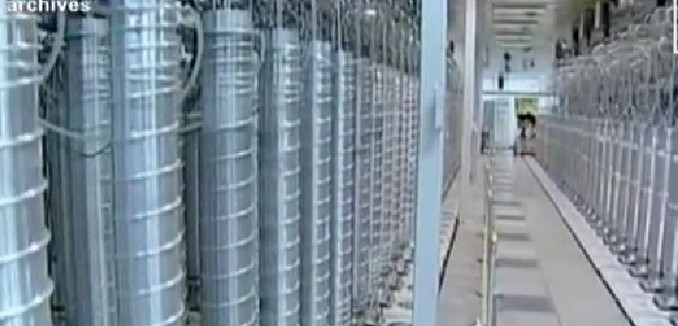According to a report Saturday in the Los Angeles Times, under some conditions the latest reported P5+1 “face-saving” offer to Iran to unplug but not dismantle their centrifuges could be “restored in days.”
Experts said the idea of disconnecting centrifuges, in various forms, has been present in Western talks with Iran for more than a decade.
David Albright and Olli Heinonen, two leading nuclear experts, said in emails Saturday that reconnecting centrifuges can take varying amounts of time, depending on how thoroughly the decoupling is done and whether related equipment is also disconnected and removed to storage. The simplest disconnection can be restored in days while other processes could take many months, the experts said.
Albright in a report published today (.pdf) by the Institute for Science and International Security (ISIS) wrote that P5+1 negotiators rejected a similar but less rigorous proposal from Iran in July. At issue are the number of separative work units (SWU) will be allowed to have in a final agreement with the West:
During the July 2014 negotiations between Iran and the P5+1, Iranian negotiators discussed lowering the total annual SWU while keeping the number of installed centrifuges the same. Iranian officials suggested that such cuts could be accomplished by lowering the speed of the centrifuge or adjusting the rate of feeding the centrifuge cascades. It is true that either method would lower the enrichment output of a centrifuge, possibly significantly, because lowering the enrichment output depends sensitively on rotor speed. But these steps can be easily reversed — speed could be increased and feed rates adjusted back to the optimal rates within a day.
Albright praises the negotiators for rejecting the Iranian proposal but cautions:
But negotiators must remain clear on this point: an agreement that lowers total annual SWU without lowering the number of installed centrifuges is not acceptable. It is easily reversible . It does not extend breakout time or provide time for warning in the case that Iran reneges on a long term deal . Moreover, it would be extremely difficult to verify, tying up valuable international inspectors’ resources in an unproductive manner. …
The bottom line according to Albright is that “[a]ny such Iranian offer that does not explicitly state that centrifuge numbers will be reduced should be treated with skepticism.”
Mark Dubowitz, executive director of the Foundation for Defense of Democracies, a critic of the proposal, said that changing the requirement from dismantling to disconnecting centrifuges “only rewards the Leader’s intransigence and makes it increasingly likely that, if there is a comprehensive deal, it will be a bad deal.”
[Photo: euronews (in English) / YouTube ]




